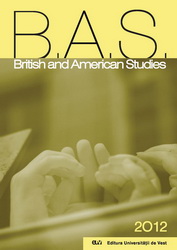THE CENSORSHIP OF BRITISH FICTION IN TWENTIETH-CENTURY EUROPE: PARADOXES AND INCONSISTENCIES
THE CENSORSHIP OF BRITISH FICTION IN TWENTIETH-CENTURY EUROPE: PARADOXES AND INCONSISTENCIES
Author(s): Alberto LázaroSubject(s): Literary Texts
Published by: Editura Universităţii de Vest din Timişoara / Diacritic Timisoara
Keywords: censorship; Lawrence; Lessing; Orwell; reception; Wells
Summary/Abstract: Censorship is as old as civilisation itself. Since the beginning of time, censors from different countries and cultures have tried to suppress books that they considered immoral, blasphemous, seditious or dangerous to the national security. Censorship of printed publications was particularly vigorous across Europe in the twentieth century and writers had to confront several censorship systems before having their books published. The diversity of political regimes under which censorship flourished generated a multiplicity of attitudes and responses towards the same author or text. This article looks at the inconsistencies and paradoxes that emerged from various European censorship systems during the twentieth century when censors had to decide whether to publish or ban the work of some very-well known British novelists, such as H. G. Wells, D. H. Lawrence, George Orwell or Doris Lessing.
Journal: B.A.S. British and American Studies
- Issue Year: 2012
- Issue No: 18
- Page Range: 9-23
- Page Count: 15
- Language: English

